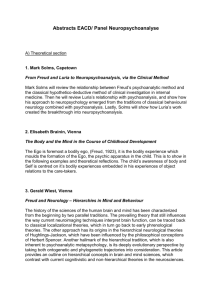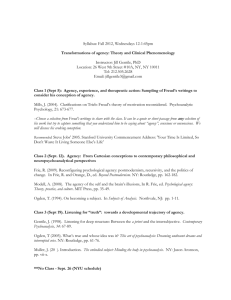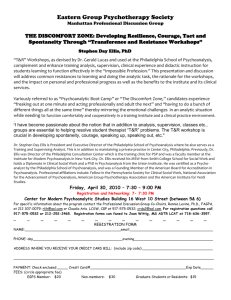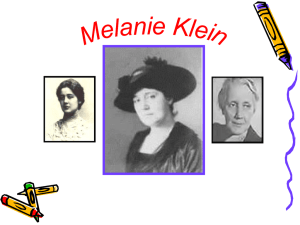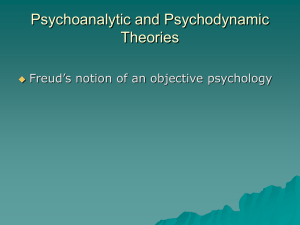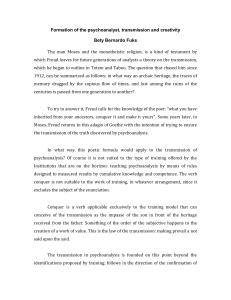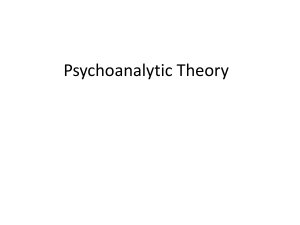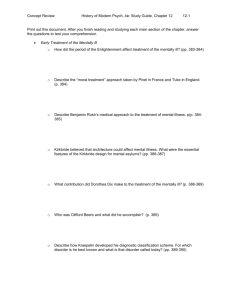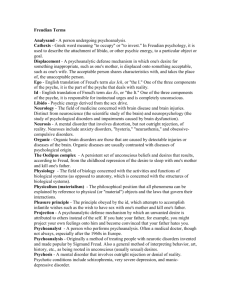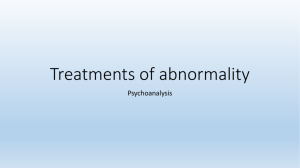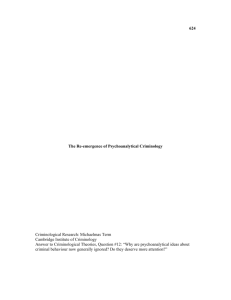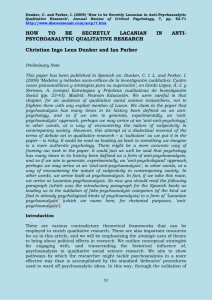Introduction to the Conference Theme
advertisement
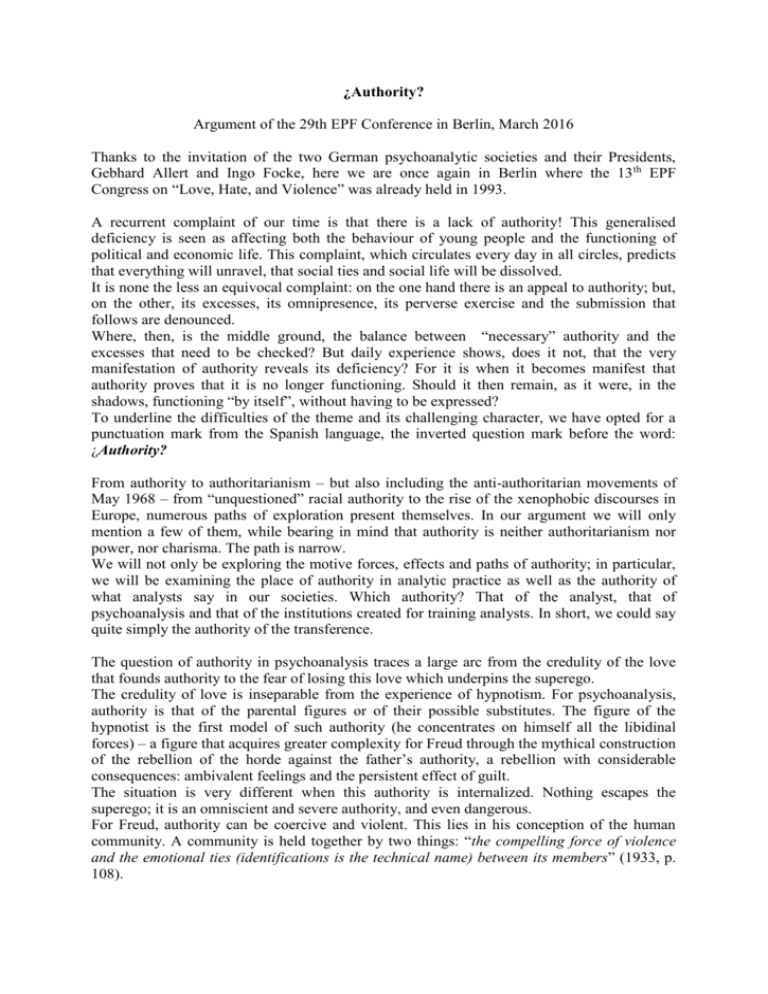
¿Authority? Argument of the 29th EPF Conference in Berlin, March 2016 Thanks to the invitation of the two German psychoanalytic societies and their Presidents, Gebhard Allert and Ingo Focke, here we are once again in Berlin where the 13 th EPF Congress on “Love, Hate, and Violence” was already held in 1993. A recurrent complaint of our time is that there is a lack of authority! This generalised deficiency is seen as affecting both the behaviour of young people and the functioning of political and economic life. This complaint, which circulates every day in all circles, predicts that everything will unravel, that social ties and social life will be dissolved. It is none the less an equivocal complaint: on the one hand there is an appeal to authority; but, on the other, its excesses, its omnipresence, its perverse exercise and the submission that follows are denounced. Where, then, is the middle ground, the balance between “necessary” authority and the excesses that need to be checked? But daily experience shows, does it not, that the very manifestation of authority reveals its deficiency? For it is when it becomes manifest that authority proves that it is no longer functioning. Should it then remain, as it were, in the shadows, functioning “by itself”, without having to be expressed? To underline the difficulties of the theme and its challenging character, we have opted for a punctuation mark from the Spanish language, the inverted question mark before the word: ¿Authority? From authority to authoritarianism – but also including the anti-authoritarian movements of May 1968 – from “unquestioned” racial authority to the rise of the xenophobic discourses in Europe, numerous paths of exploration present themselves. In our argument we will only mention a few of them, while bearing in mind that authority is neither authoritarianism nor power, nor charisma. The path is narrow. We will not only be exploring the motive forces, effects and paths of authority; in particular, we will be examining the place of authority in analytic practice as well as the authority of what analysts say in our societies. Which authority? That of the analyst, that of psychoanalysis and that of the institutions created for training analysts. In short, we could say quite simply the authority of the transference. The question of authority in psychoanalysis traces a large arc from the credulity of the love that founds authority to the fear of losing this love which underpins the superego. The credulity of love is inseparable from the experience of hypnotism. For psychoanalysis, authority is that of the parental figures or of their possible substitutes. The figure of the hypnotist is the first model of such authority (he concentrates on himself all the libidinal forces) – a figure that acquires greater complexity for Freud through the mythical construction of the rebellion of the horde against the father’s authority, a rebellion with considerable consequences: ambivalent feelings and the persistent effect of guilt. The situation is very different when this authority is internalized. Nothing escapes the superego; it is an omniscient and severe authority, and even dangerous. For Freud, authority can be coercive and violent. This lies in his conception of the human community. A community is held together by two things: “the compelling force of violence and the emotional ties (identifications is the technical name) between its members” (1933, p. 108). Authority is not just an external matter. To put it differently, it is just as much external as internal, a relationship just as much as a social phenomenon. It is closely linked to the loss of love and affective ties. Always a thorny issue here is the fundamental element of suggestion in the transference, its wild and barely rational aspect. Is it basically a question of love? If we agree on the fact that suggestion is an important aspect of the effect and authority of the transference, why don’t we use suggestion directly, for instance, via hypnosis? Is not every analyst confronted in each treatment with the place that he gives to his authority and to suggestion and its consequences both for him and for the patient? Should the analyst forego making use of the authority with which he is invested? Every analyst knows, at least intuitively, that he must be careful not to disavow it or diminish it, for it is one of the mainsprings of the treatment. And what happens at the end of the treatment and in its aftermath? Furthermore, what can be said about the functioning of analytic institutions? * Sociology and political philosophy play a full part in this debate. For these disciplines, too, the question of the right balance between authority and authoritarianism is raised. The modern philosophical tradition criticizes all forms of instrumentation of the individual, all forms of domination, whatever they may be (racial, sexual, etc.). This being the case, is it conceivable, for example, to reduce the domination by rules within a society? Can authority be institutionalised? Authority is only justified, it is said, if it seeks the good of those who submit to it voluntarily. This can give rise to a distinction, in political philosophy, between a “good” and a “bad” authority. But psychoanalysis shows us, does it not, that there is no possible point of balance? The undecidable issue of whether authority is good or bad belongs to another field: that of ethics, or of morality. Authority is neither the exercise of force (“Where force is employed, authority itself has failed,” Hanna Arendt (1954) writes in “What is authority?”), nor that of persuasion, nor of argumentation. Does an obedience exist constructed by psychic structuring itself? May we assume a constant aspect of subjectivity that psychoanalysis can study? A psyche outside time? In her text (see above), Hanna Arendt considers that every act of foundation is based on a triptych of tradition, religion, and authority: the component of authority only functions in relation to the two others, with, as a reference point, the question of foundation. However convincing or debatable her hypothesis may be, it is striking to note that Freud’s work refers to elements that are in a way homologous: the question of a first act, of a basically transgressive and criminal foundational act (a question that is absent in H. Arendt), the place of tradition, the study of religion as an essential human production for social and individual life. The parallel is striking. Is it possible to think that the question of authority is first and foremost one of foundation? * This year we are celebrating the 50th anniversary of the founding of the EPF. Once again we are faced with the question of the meaning of foundation, of an act which could not foresee from the outset its possibilities or its errors, but an act to which we owe a possibility that exists for us and which we want to “increase” (first sense of the word “augere” in Latin from which the word authority is derived). Celebrating in Berlin the foundation of the EPF with the question of authority at stake cannot fail to evoke what has perhaps been the darkest period of European history. It remains, none the less, that Berlin was, with Vienna and Budapest, one of the three capitals in which psychoanalysis thrived in the 1920’s. Berlin is also the city of another fondational act, that of 2 the Berlin Institute which gave rise to the classical tripartite training for psychoanalysts. For Max Eitingon, its founder, training was inseparable from the possibility of making psychoanalytic treatment accessible to those who could not pay for it, thereby linking training to a certain form of clinical practice. This was another reason for the foundation of the Psychoanalytic Polyclinic in the Potsdamer Strasse, less than one kilometre from where our Conference is being held. That was the era of the pioneers! It is to be hoped that our colleagues from the East, in their drive to found psychoanalysis in their country – or to revive it – will rediscover the spirit of foundation. For Freudian psychoanalysis, authority and tradition are founded on crime and betrayal. This should suffice to temper any form of triumphalism or any temptation to honour our predecessors blissfully. The great advantage is that the act of foundation is reduced to the level of a human gesture. No divine or deifiable figures, no divine protection for the future. It will be an authority without heroes, finally, a truly secular authority! * The organisation of the Berlin Congress marks the end of the mandate of the EPF Executive presided over by Serge Frisch. New authorities will take up their functions. The four themes selected are not classical questions of psychoanalysis. Rather, the choices have concerned themes that put psychoanalysis to work within the reality of our time. Although organised in the form of a “pre-congress” (all day Wednesday and Thursday) and of a “congress” (from Friday morning to Sunday midday), the two parts are inseparable from one another: the work in small groups focused on clinical practice during the first days and the lectures and panels during the following days complement and echo each other. We would like to express our thanks to the Scientific Committee chaired by Franziska Ylander, Vice-President of the EPF and the person responsible for the annual congress: Delaram Habibi-Kohlen, Klaus Grabska, Milagros Cid Sanz, Benedetta Guerrini Degl’Innocenti, Martin Mahler, Joan Schachter and Heribert Blass. And also to the Local Committee which has welcomed us so warmly: Cornelia Wagner, Robert Span and Sanja Hodzic, Eva Reichelt, Rita Marx and Alice Faerber. Serge Frisch Franziska Ylander Leopoldo Bleger References Arendt H (1954). What is Authority? In: Between Past and Future, pp. 91-141. New York: Penguin Classics, 2006 Freud S (1933). Why War? SE 22: 195-215. 3
